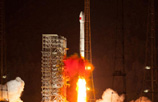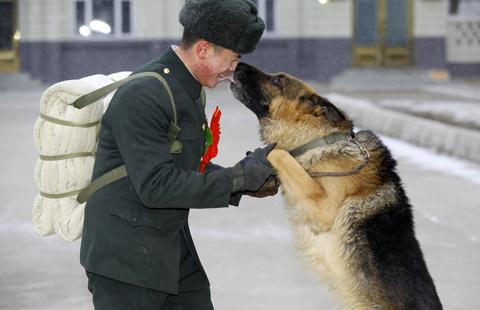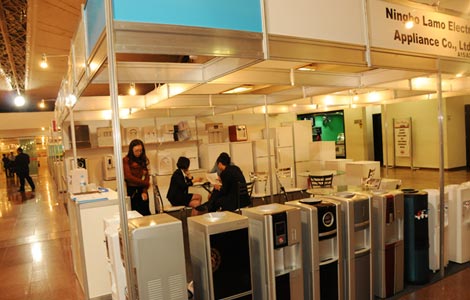Syria faces ferocious wave of terrorism
Updated: 2014-12-02 10:23
(Xinhua)
|
||||||||
DAMASCUS -- Syria's Minister of Justice Najm al-Ahmad said Monday that his country is facing a ferocious wave of terrorism, warning of the repercussions of such terrorism on the international community.
"We say that today we are facing the most ferocious terrorism and Syria is fighting it with all of its political and military capability," the minister told Xinhua on Monday.
The minister made the remarks at the sideline of the International Conference for Combating Terrorism and Religious Extremism, which was held in the capital Damascus on Sunday and Monday with the participation of politicians and activists from 25 Arab and foreign countries.
The conference aimed at figuring out criteria for confronting the growing threats of terrorism.
Al-Ahmad said the conference was a "legal and professional" one that aims to find legal criteria to face the dangerous terrorism whose repercussions are threatening the international community as a whole.
The minister, meanwhile, took a swipe at the countries that support the terrorism in Syria, saying "the terrorism has no borders or home and thus what has been exported to us of this terrorism will surely rebound on those who sent it one way or another."
He stressed that the cooperation with the Syrian government in the fight against terrorism is "important."
"The cooperation on fighting terrorism with the Syrian government is extremely important to get rid of the terrorism and protect other countries from its repercussions," he said.
Participants at the conference affirmed that combating terrorism should be taken on the international level through the UN without interfering in the domestic affairs of any state under the pretext of fighting terrorism, or interpreting the UN's resolutions selectively.
In a final statement, the participants called on establishing an international popular court located in Damascus.
They also affirmed that the siege imposed on some countries for political reasons, like Syria and Gaza Strip, is considered as "a terrorism act."
The participants pointed out that the unilateral sanctions imposed on Syria by the US and European Union are illegal and violate the international law, calling for lifting them.
Jamal Zahran, an Egyptian university professor, told Xinhua that "the message of this conference is for building a social base in a bid to decisively confront the terrorism. We cannot afford to waste time, we need to confront terrorism in order for the Arab region to live peacefully far from this terrorist bogeyman."
For his part, Elia Sheranov, a Russian humanitarian activist, demanded the international community and the United Nations specifically to bring the countries responsible for supporting terrorism to justice.
The Syrian government has for long claimed that the country was subject to a foreign-backed terrorism, citing the large flow of jihadists into Syria via neighboring countries.
The Syrian army has been engaged in deadly battles with the Islamic State (IS) militants and the al-Qaida-affiliated Nusra Front, both designated as terrorist organizations.
After acknowledging the threats of terrorism in the region, the US and other allies have unleashed airstrikes against the extremist groups' positions in northern and eastern Syria.
Still, the strikes have done little to stem the momentum of those extremist groups.
- UK brothers jailed for attending Syria terror camp
- British couple arrested on suspicion of Syria-related 'terror offences'
- US-led strikes kill over 900 in Syria: activists
- Airstrikes add to Syria's economic woes
- Syria dilemma for the US
- Authorities clean up terrorism info online
- Cyber terrorism sparks Internet debate
- Only a sincere US can fight terrorism
- China, US agree to boost anti-terrorism cooperation
Most Viewed
Editor's Picks

|

|

|

|

|

|
Today's Top News
New visas a boon to real estate
China records 497,000 people with HIV/AIDS
Ailing school district seeks Chinese help
Web options proliferate for Chinese shoppers
Artists seek US audiences
Alibaba, Amazon in online battle
HK protesters clash with police outside govt headquarters
Cross-border e-commerce booming
US Weekly

|

|















